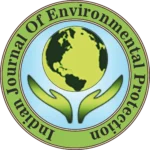IJEP 43(9): 815-821 : Vol. 43 Issue. 9 (September 2023)
J.V. Arun1* and A. Premkumar2
1. Government Arts College for Men (Autonomous), Department of Economics, Chennai – 600 035, Tamil Nadu, India
2. Sacred Heart College (Autonomous), Department of Economics, Tirupattur – 635 601, Tamil Nadu, India
Abstract
One of major challenges arising out of urbanization has been the issue of access to sanitation facilities and the menace of defecating in open spaces. The practice of open defecation has drastic effect on health and poor sanitation behaviour and attitude inexorably lead to environmental degradation. The paper has analyzed challenges that threaten our ability to expand sanitation coverage among poor households living in urban slums of Chennai city. Primary data was collected from 100 households and the study found that there is better usage of latrines among households but whenever there is shortage of water supply, people tend to defecate in public. Added to this, most households dispose of wastewaters into water drainages. Study recommends adoption of toilet technologies that are less water intensive; wastewater disposal mechanisms followed by overall behavioural change.
Keywords
Water, Sanitation, Hygiene, Open defecation free, Urban, Slum
References
- Chandramouli, C. 2011. Provisional population totals. Census of India, Government of India, New Delhi.
- Panchang, S.V. 2019. Sundaas story: A mixed-methods study of household sanitation provisioning in urban informal housing in India. USF Tampa Graduate Theses and Dissertations.
- Steinmann, P., et al. 2015. Psychosocial stress associated with sanitation practices: Experiences of women in a rural community in India. J. Water Sanit. Hyg. Develop., 5(1):115-126.
- House, S. and S. Cavill. 2015. Making sanitation and hygiene safer: Reducing vulnerabilities to violence. In Frontiers of CLTS: Innovations and insights 5. IDS, Brighton.
- District Statistical Handbook: Chennai. 2011. Directorate of Economics and Statistics, Government of Tamil Nadu.
- Joshi, A., et al. 2014. Water and sanitation hygiene knowledge attitude practice in urban slum settings. Global J. Health Sci., 6(2):23-34.
- Venkatachalam, L. 2012. Role of informal water markets in urban water supply: A household survey based case study of Chennai city. Working Paper Institute for Water Policy, National University of Singapore.
- Poulos, C., et al. 2012. Consumer preferences for household water treatment products in Andhra Pradesh, India. Social Sci. Medicine. 75(4):738-746.
- Anderson, J.L., et al. 2008. Gender and ethnic differences in hand hygiene practices among college students. American J. Infec. Cont., 36 (5):361-368.
- Vanyolos, E., et al. 2015. Usage of ultraviolet test method for monitoring the efficacy of surgical hand rubs technique among medical students. J. Surgical Edu., 72(3):530-535.
- Berry, T. D., D.R. Mitteer and A.K. Fournier. 2015. Examining hand-washing rates and durations in public restrooms. Env. Behaviour. 47(8):923-944.
- Government of Tamil Nadu. 2019. Budget for the year 2019-2020 to the Legislative Assembly on 8th February, 2019.
- Musoke, D., et al. 2018. Drinking water supply, sanitation and hygiene promotion interventions in two slum communities in Central Uganda. J. Env. Public Health. DOI: 10.1155/2018/3710120.
